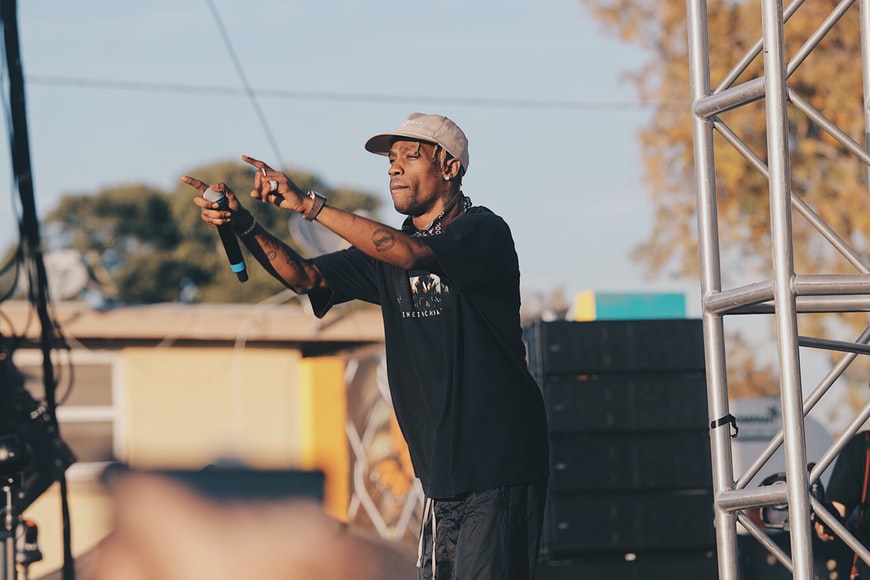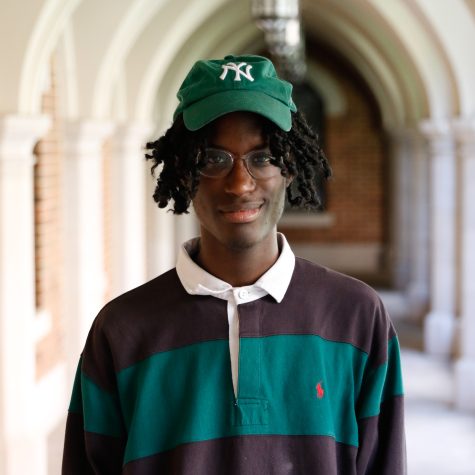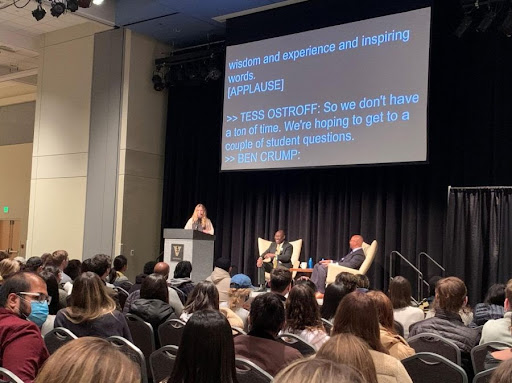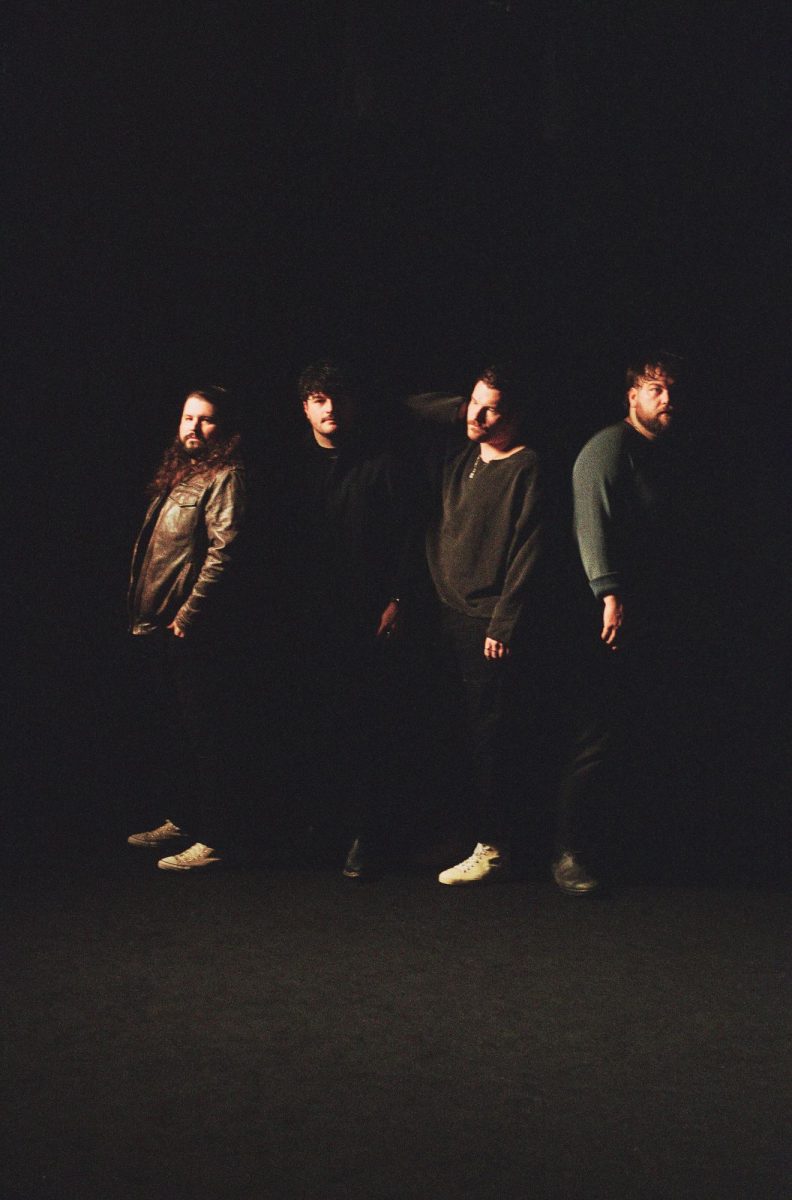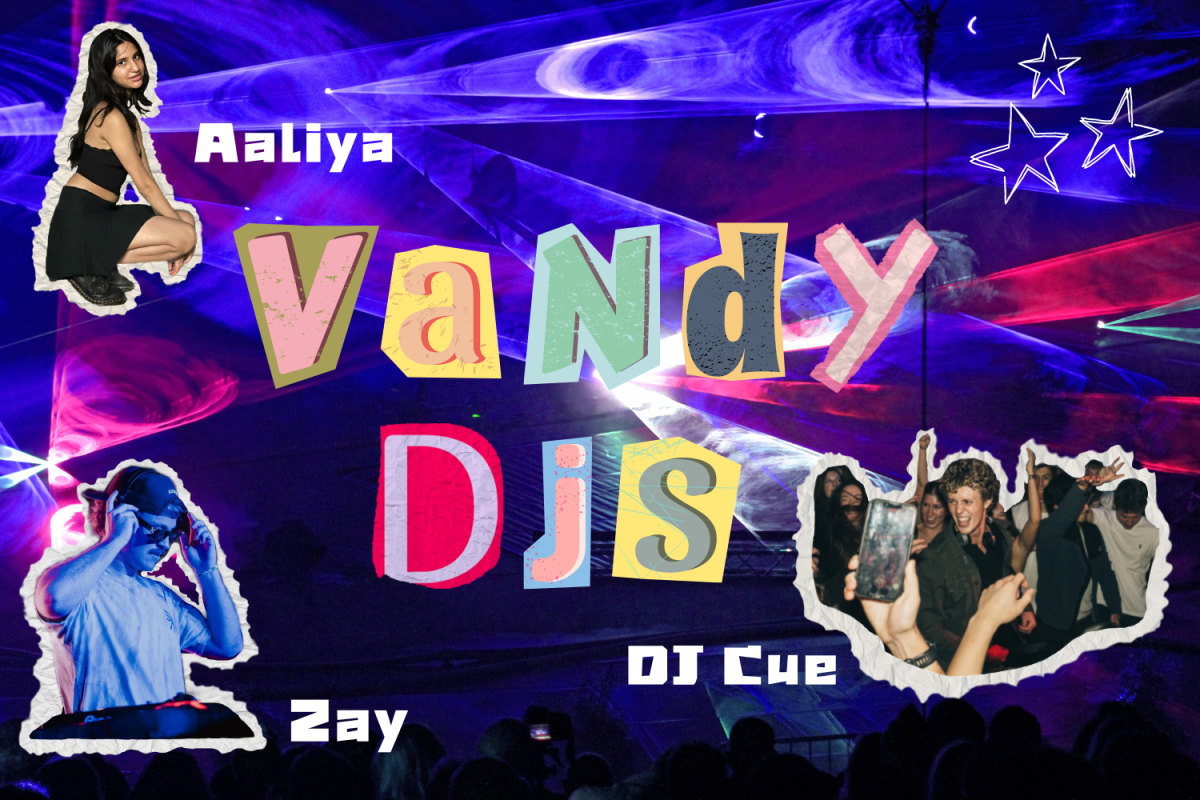Editor’s Note: Story contains mentions of violence, death, sexual assault, rape and mass shootings.
On Nov. 6, a mass tragedy occurred at rapper Travis Scott’s Astroworld concert series in Houston, Texas. As of the current date of publication, ten people have been confirmed dead: John Hilgert, Franco Patiño, Jacob Jurinek, Rudy Peña, Mirza Danish Baig, Brianna Rodriguez, Axel Acosta, Madison Dubiski, Ezra Blount and Bharti Shahani. Scores remain injured in hospitals across the Metro Houston area.
Among these confirmed victims were high school freshmen, college students studying mechanical engineering and pursuing journalism, bright and introspective twenty-year-olds, young children and people who died attempting to keep their families and loved ones safe.
Upon hearing the news that there were deaths at a concert, our stomachs felt the familiar sink of hearing news related to mass shootings. We wondered who had perpetrated the violence this time, what their grievances with the world were and why innocent people continued to be victims of senseless brutality. Before reading the news, we were reminded of the 2017 Ariana Grande concert victims, which left 22 (many victims being young, female concertgoers) victims to senseless terrorism-related violence.
But, Astroworld was different. This incident had no direct perpetrator, no weapons and no terrorism-related evil. These casualties resulted directly from the slow development of a violent and deadly concert culture bubbling in various music circles including rap and hip-hop. These casualties were the fault of poor planning, inexperienced staff and a frontman blinded by success, fame and a history of encouraging of violence within his crowds. Post news-breaking, fingers were immediately pointed in multiple directions: at the artist himself, at certain fans and their seemingly nonchalant attitudes towards the impending disaster (being filmed dancing on top ambulances and refusing to move for paramedics), at the venue being understaffed, under-experienced and under-resourced in their approach to a massive concert series.
This tragedy from the onset was multifold, a compounding result of a culture of violence, a lack of urgency in protecting and supporting fans by concert organizers over the last few years, as well as the overall stress and tensions that continue to plague those willing to venture into crowded spaces post-pandemic.
In an overview of the French philosopher Émile Durkheim’s theory of “collective effervescence,” University of Montreal researcher Paul Carls writes: “This impersonal, extra-individual force, which is a core element of religion, transports the individuals into a new, ideal realm, lifts them up outside of themselves and makes them feel as if they are in contact with an extraordinary energy.”
Long before the carnage at this year’s Astroworld Festival, such energy and crowd-spurred stockpiling was an integral part of live concerts on a cultural scale. It’s a ritualistic practice artists have historically embraced, with bodily sacrifices and deliberate harm acting as extreme outlets for simmering frustrations—Germs frontman Darby Crash often drove audiences into hysteria by ripping his flesh with shards of glass onstage; over two decades later, the mosh-pit has become something that rappers have not only encouraged from up on the platform—they often even incite from within.
When it comes to performers putting themselves on the line for their audiences, there is an endless list of historic examples. In his essay collection “Psychotic Reactions and Carburetor Dung” alone, the music critic Lester Bangs detailed everything from Iggy Pop willingly allowing himself to be violently beaten by a motorcycle gang he had insulted mid-performance, to the enigmatic rock star Alice Cooper smearing a cake across his face after being pelted with it by an audience member.
This—as malevolent as it all seems—is good energy. It is the breaking down of what unseen barrier severs producer and consumer; the artist is not only human after all, but willing to shed their mystique in order for a group of strangers to go home happier.
But sometimes, the barrier isn’t broken. The mystique isn’t shed. And forget going home happier—some of the strangers never make it home at all.
At one point during this year’s Astroworld Festival, Travis Scott performed from an elevated, larger-than-life platform erected from the main stage. As the unconscious body of a young attendee was carried away, eerily crowd-surf-esque, by paramedics in his direct line of vision, he appeared to shoot the scene a robotic glare. He stood there on the pedestal. Straight as a soldier, he continued to belt out a series of auto-tuned hums. “Oh my God,” one audience member screamed. “What’s going on?” another cried out. “Ayy,” sang Scott.
As of today, out of hundreds who were injured at the event, ten are confirmed dead. In a dystopian, Marie Antoinette flinging bread at French peasants-y way, many news outlets leaped at the chance to report that Kylie Jenner and Stormi were unharmed by the concert’s violent nature. These immediate reports—in addition to a blatantly ingenuine apology video—only amplified the apparent lack of care for his fan base that Scott, his associated personnel and his family seemed to show while devoted followers were screaming for help beneath them.
It will live on as one of several grim, blood-red splotches in the storied timeline of concert culture. Yet another reminder that while healthy “collective effervescence” was standing the test of time, the grim reaper was copying its notes. At the Altamont Free Concert in 1969, one reveler who had tried to mount the stage was pummelled and stabbed to death by the infamous Hells Angels biker gang. Thirty years later at Woodstock 1999, rapes, arson and high-scale violence served as harrowing substitutes for the advertised “Peace, Love and Music.” As recently as 2017, a gunman opened fire on a Las Vegas country music concert, killing 61 and injuring over 800.
As much as we often flock to spaces that provide safe, controlled environments for us to be relieved of stress—whether concert venues, movie theatres or even churches—an unfortunate lesson one quickly learns from living in a time like this is that no such place is actually exempt from the evil it exists to escape. Evil is everywhere, and it doesn’t always look like a biker gang stabbing a teenager to death, a rape being committed in the shadow of arsonous flame or a gunman shooting down at hundreds of people. Sometimes, the evil looks like your favorite artist watching his fans die and continuing to sing.
It leaves us questioning the great question that has always plagued mankind: what do we owe each other? Do we owe each other the safe space of a concert, to sway in the enjoyment of our favorite artists together? Or are we releasing such spaces to violence as we collectively seem to have released to movie theatres, sports arenas, country music festivals and even airports?
Along the same lines, what do we owe each other post-pandemic? These mass gatherings are still fresh to so many after remaining closed and shuttered for two years; many fans desperate to recreate the energy of past years’ concerts and festivals, making up for all that we have missed. Intense and violent behavior post-pandemic in crowded spaces, or just spaces where we are forced to interact with each other face-to-face again, is well-documented. From countless cell phone videos of “Karen” meltdowns to elementary school teachers recounting experiences with student behavior issues that seem unmatched compared to prior years, we seem to, as a society, have lost many of the social graces that have carried us through keeping each other sane and safe.
Do we owe each other the bliss of a grocery store visit free of a mask-related meltdown? Do we owe each other a safe concert mosh?
Travis Scott, along with many other modern rappers, has a long history of leaning into the kind of high-energy and violent crowd activity that gave Astrofest its fatal outcome.
“When you are in a Travis mosh-pit, it’s everyone against everyone,” first-year Mahaan Uttam, who attended Scott’s 2021 Rolling Loud Miami performance, said. “The fights are multiplied. Everyone’s pushing up against you. You move the way he does. It’s cerebral; it’s a whole different experience, you feel it on every level.”
One is forced to question whether this is a Travis Scott problem or a cultural one. There are far too many fingers worth pointing for there to be a standalone guilty party to blame. Yes, Scott has long been either apathetic or delighted about his fans not “surviving the rodeo.” He was also warned by a Houston police chief about crowd dangers beforehand, the New York Times reports. Yes, countless hordes of audience members—8 of which died—wrongly broke through the entrance and sowed seeds for chaos before the real chaos could begin. Yes, there was an endless list of crucial planning errors, many of which were beyond Scott’s jurisdiction, that went great lengths in allowing such a melee to be possible in the first place.
Still though, perhaps the most grim thing isn’t the concert itself, but what it has revealed: for the most part, these things are only seen as issues when people die.
In the wake of Astrofest’s makeshift industry-wide call to action, videos are beginning to surface of artists making extra efforts to ensure that their concertgoers are safe. In one example, taken two days after the Astrofest incident, the musician Teyana Taylor dramatically walks to the edge of her stage to peer down at a woman in the audience.
“Is she okay?” she demands. “Bring her up here, bring her up here, nuh-uh, nuh-uh. Is she okay? Bring her up here. Is she okay? We ain’t doing that.” The crowd roars, and Taylor instructs the woman to take a seat next to her onstage before the video cuts off.
People are also digging back into the archives to make their points about the incident known: one resurfaced video from 2019’s California Rolling Loud Festival saw A$AP Rocky spot a fallen group of fans and demand that the show be stopped until they were proven to be alright.
“Everybody, back up! Look! Watch out!” he shouted, signaling towards the group. “Pick those girls up, bro! Pick the girls up! Pick the fucking girls up, what’s wrong with y’all?”
I read these two specific gestures, and the many both pre and post-Astrofest that exist like them, as either empty tokens or fleeting changes of character. In Taylor’s case, it is very easy to check on fans when a fellow artist is currently under fire for not doing the same. The crowd roars. The internet loves you. You become a counterexample to public enemy number one, and you no longer have to worry about falling under the same scrutiny. But when the moment has passed, the issue isn’t popular anymore and the caution has ceased, how guaranteeable is it that the same artists making extra efforts to take such measures now will do the same?
We have seen the dynamic play out time after time, movement after movement: first, the outrage. Then, the efforts. Then, the silence. And finally—at least until another incident goes viral—the return to normal.
Aside from the rare instances that see him actually offer them assistance, A$AP Rocky is mostly someone who demands that female concertgoers throw their bras at him when he’s on stage, and revels in seeing fans emerge from his crowds bloody. Because the current moment calls for it, we choose to acknowledge the version of him that best incriminates Travis Scott. But when it’s all over, not only will audiences be back to knowing Rocky for his normal face—they’ll likely be back to enjoying it, too.
The incorrect way to go about this situation is to point fingers. For every person that says Travis Scott is definitively to blame, there is someone else saying that he couldn’t see straight. For everyone angrily implicating the audience, there’s someone else blaming the workers for not doing enough to help. For everyone throwing fits over the poor planning, there’s someone else insisting that it was an impossible situation to control in the first place.
And while all of us are arguing about whose finger should be pointed where, someone out there is using all five fingers to count their money. The Astroworld Festival and those behind it are enjoying a huge payday—whether we come to a consensus or not.
Rap culture is often an aggressive, anti-authority, anti-societal norms space. We value that. Rap fans value having a space to mosh, to move and release tension with people of similar tastes, to be with the artists that we hold sacred. But these spaces must be sacred too. There are very few arenas in modern-day America that allow people our age to feel safe and secure. Whether that’s the countless young Americans who have firsthand experience with gun violence or those that have been traumatized by their formative years being plagued by constant reports on such violence, we need spaces that support release of tension and stress while ensuring our safety.
And we need artists who foster concert cultures that support such circumstances as well. One hopes post-Astroworld tragedy, when it’s no longer trending to “cancel” Scott, when the GoFundMes’ fundraising periods end and the artists stop pausing concerts to ensure fan safety, that the fans take it upon themselves to continue this conversation. That we understand what we owe each other in the music world today. We, the fans, the concertgoers, those that support these artists’ careers, deserve it.
Our hearts are with the families of John Hilgert, Franco Patiño, Jacob Jurinek, Rudy Peña, Mirza Danish Baig, Brianna Rodriguez, Axel Acosta, Madison Dubiski and Bharti Shahani, Ezra Blount—passings that are heartbreaking to hear of and undoubtedly heartbreaking to experience. They deserve this momentum, this conversation and their passing should be honored by embracing difficult truths regarding violence normalized in our intended spaces of belonging and comfort.











